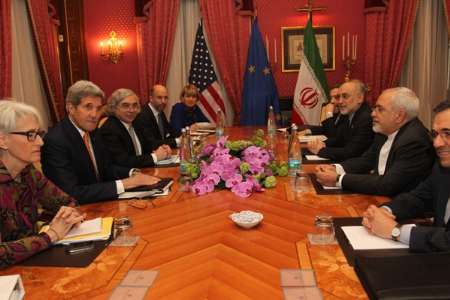Iran and six major powers on Tuesday gave themselves until July 7 to clinch a historic nuclear deal as a midnight deadline approached in marathon talks with no breakthrough.
Iran and six major powers on Tuesday gave themselves until July 7 to clinch a historic nuclear deal as a midnight deadline approached in marathon talks with no breakthrough.
Russian Foreign Minister Sergei Lavrov, who joined the talks in Vienna earlier Tuesday, said that a deal ending the 13-year standoff is "within reach".
The talks are "progressing in a positive direction. There remain questions, mostly regarding procedural issues rather than technical," Lavrov told Russian television after meeting US Secretary of State John Kerry.
"We have all reason to believe that results are within reach," Lavrov said.
Earlier Tuesday Iranian Foreign Minister Mohammad Javad Zarif returned to Vienna following consultations in Tehran, a visit that had raised hopes he may be bringing instructions that would yield a breakthrough.
But after Kerry met with Zarif for almost two hours after his return, the US State Department said the P5+1 group of global powers had agreed to extend the terms of an interim agreement until July 7.
A State Department official said however that this did "not necessarily mean they will go until the 7th or end on the 7th."
Kerry had also made no plans for when he might leave the Austrian capital.
A member of the Iranian delegation said that "the negotiations will continue beyond June 30 without any precise fixed date."
After one-on-one talks, the top American diplomat and Zarif were joined by their teams for a broader meeting, including with nuclear experts US Energy Secretary Ernest Moniz and Iran's nuclear chief Ali Akbar Salehi.
The two Massachusetts Institute of Technology alumni played a key role in brokering the outlines of a breakthrough accord in April in Lausanne, Switzerland.